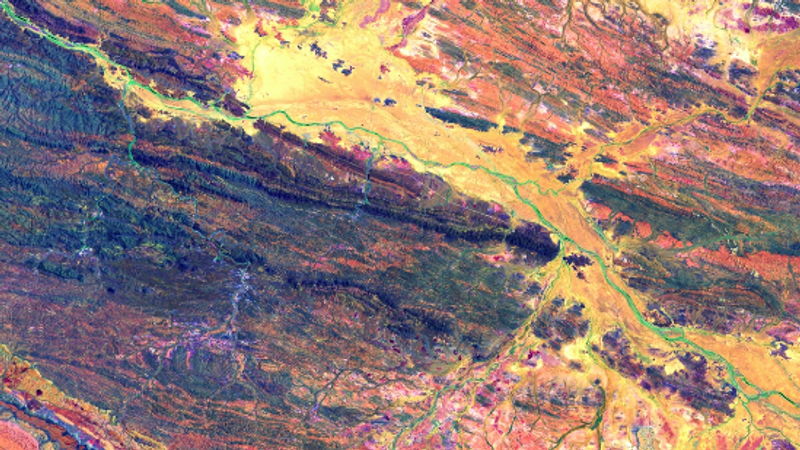
Building Africa’s AI Future: What We’re Learning from Africa’s AI Landscape Study
Artificial Intelligence (AI) presents immense opportunities for Africa. It can help improve healthcare delivery, drive innovation in education , and secure our future through advanced agricultural technologies, among other benefits. But how do we ensure that this potential is shaped by African priorities, talent and values, and not imported models that overlook local needs?
That’s the question we set out to explore through our recent collaboration with Meta: a partnership that includes the publication of the AI in Africa: A Landscape Study, a set of policy briefs, and a three-part webinar series that brought together researchers, policymakers, developers, and practitioners to share what it takes to build a responsible and inclusive AI ecosystem in Africa.
Here’s what we’ve learned.
Strengthening Africa’s Ecosystem Through Open-Source Innovation
Read the brief: Strengthening Africa's Ecosystem Through Open- Source Innovation
When backed by intentional policy and investment, open-source approaches hold massive potential for Africa’s AI future. The first webinar in our series focused on how open-source AI tools can democratize innovation, especially for local developers and startups. But as the corresponding brief outlines, the region still faces deep infrastructure and policy gaps.
The brief identifies four bottlenecks: limited compute capacity, poor-quality data ecosystems, talent gaps, and fragmented governance. These issues reinforce each other, stalling progress. The recommendation? Build a coordinated strategy: regional resource federations, shared infrastructure, and clear regulatory frameworks. Projects like the Masakhane translation initiative and Mozilla’s Mradi program offer real examples of how open-source innovation can thrive when built on African needs.
Leveraging AI for Sustainable Development in Africa
Read the brief: Leveraging AI for Sustainable Development in Africa
AI can support Africa’s sustainable development goals, if used intentionally. In the second webinar, speakers explored how AI is already being applied in sectors like agriculture, healthcare, and energy. The accompanying brief goes further, showing how AI could help boost GDP, create jobs, and improve service delivery.
But the gains aren’t guaranteed. The brief stresses that widespread, equitable impact will require:
- Policies that support ethical AI deployment and protect rights
- Infrastructure investment, especially in energy and internet connectivity
- AI literacy and digital skills development, particularly for women and youth
- Governance that actively promotes accountability and anti-corruption efforts
Use cases like precision agriculture, AI-powered disease detection, and energy-efficient smart grids are promising. Yet without robust safeguards, AI risks replicating or worsening existing inequalities.
The takeaway is clear: sustainable AI isn’t just about applications, it’s about the foundations that make those applications work for all.
Implications of Open-Source Large Language Models for Africa
Read the brief: Implications of Open-Source Large Language Models for Africa
Large language models (LLMs) are reshaping the AI landscape. The final webinar explored how open-source LLMs can help address the exclusion of African languages and knowledge systems in global AI tools.
The related brief calls for bold action to ensure open-source LLMs support Africa’s development goals. That means:
- Creating inclusive datasets that reflect African languages and cultural contexts
- Establishing computing hubs and lowering the cost of access
- Promoting transparent licensing and community-driven model development
- Training African researchers and practitioners to lead this work
It also recommends setting up a pan-African AI consortium and an AI ethics board, alongside stronger international partnerships and knowledge-sharing networks. The stakes are high. Without these steps, LLMs risk further entrenching digital divides.
Together, these webinars and briefs show us that AI’s future in Africa will be built by those who invest in it, shape it, and govern it with care. That means designing AI tools and policies that reflect the realities of the continent: its people, its languages, its potential and importantly, and its constraints.
